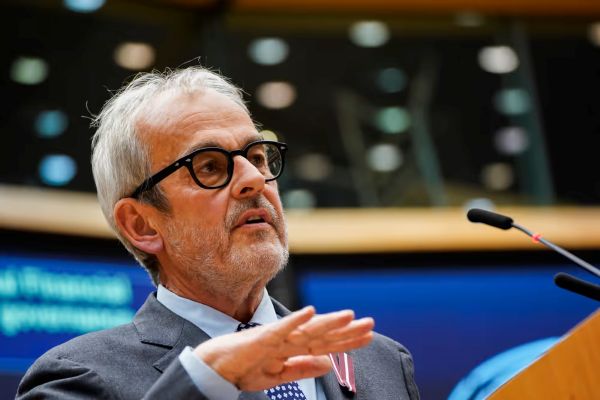Members of the European Parliament (MEPs) from the Transport and Defence committees have issued an urgent appeal to remove internal borders and enhance infrastructure to facilitate the efficient movement of troops and military equipment across the European Union. On 19 November, the European Commission presented a military mobility package to streamline the transport of troops, equipment, and military assets across Europe.
The draft resolution on military mobility, adopted by the Transport and Defence committees, underscores the pressing need for rapid cross-border movement of military personnel and resources in light of potential threats, particularly from Russian aggression. This capability is not only crucial for strengthening collective European security and defence but also vital for ensuring the safety of the eastern flank, especially for the Baltic nations and Poland.
“I am thrilled to have a successful vote today. Currently, there are far too many hindrances to military mobility that could be quickly addressed without requiring much funding. We do not have time to waste – we have to keep up the momentum and reach for the low-hanging fruit. The Commission’s proposal must be approached with the same urgency,” said Transport and Tourism Committee rapporteur Roberts Zīle (ECR, LV).
While recognising that substantial progress has been made in enhancing military mobility, the MEPs have identified enduring administrative, financial, and infrastructural challenges that hinder effectiveness. These challenges can result in considerable delays, at times exceeding a month, for the movement of military equipment across EU borders.
Consequently, the MEPs are urging EU member states and the European Commission to significantly increase investments in transport infrastructure, particularly along the four designated EU military mobility corridors. They advocate implementing more digital solutions and expediting the process for cross-border movement authorisations.
The committees propose the creation of a “military Schengen area,” supported by a dedicated military mobility task force and a European coordinator, to ensure the efficient realisation of various initiatives. They request that the Commission develop a comprehensive roadmap to achieve these goals and suggest establishing an EU digital one-stop shop for the processing of cross-border movement authorisations for military equipment.
The MEPs welcome the Commission’s proposal to raise the military mobility budget to over €17 billion in the next long-term budget and implore EU member states not to reduce this allocation, as was the case in the 2021-2027 budget, where funding was reduced by 75%. The proposal to upgrade 500 critical infrastructure “hotspots”—such as bridges and tunnels—and to operationalise the four military mobility corridors is estimated to require at least €100 billion. The MEPs also call for the Commission to facilitate simplified procedures for obtaining funding for dual-use projects.
Military mobility is recognised as a priority for EU-NATO cooperation and is essential for enabling the movement of allied forces in times of peace, crisis, or conflict. The adopted resolution advocates regular joint exercises and stress tests to identify and address existing obstacles. Furthermore, the MEPs urge the EU to draw inspiration from NATO, ensuring that rapid reaction forces can cross internal EU borders within 3 days in peacetime and within 24 hours in a crisis.
The draft non-legislative resolution on military mobility passed with 56 votes in favour, 11 against, and two abstentions. It is scheduled for presentation to the plenary for voting, potentially during the December session.
“In order to maintain Europe’s strength and ability to deter any aggressor, it is crucial that we demonstrate our readiness to act. This includes having the capacity to deploy troops and equipment rapidly throughout the Union. Overcoming administrative burdens and developing capacity and dual-use infrastructure is not a luxury, but a necessity. The European Parliament is highlighting the work that remains to be done to achieve a true ‘military Schengen area’, and this must be accomplished in the shortest possible time,” added Security and Defence Committee rapporteur Petras Auštrevičius (Renew, LT).

